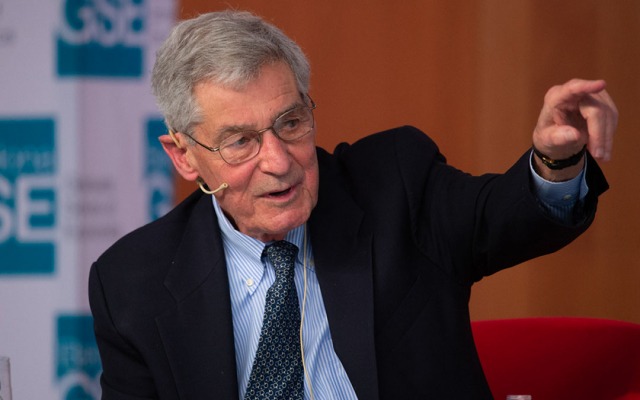Why was Robert Lucas, Jr. Awarded the Nobel Prize for Economics in 1995?
Robert Lucas, Jr.: The Nobel Laureate Who Revolutionized Macroeconomics
In 1995, the Nobel Prize in Economics was awarded to the eminent American economist Robert Lucas, Jr. for his groundbreaking work in macroeconomics. Through his innovative contributions, Lucas reshaped the field of economics, laying the foundation for modern macroeconomic theory.

1. Rational Expectations and the Lucas Critique
One of Robert Lucas, Jr.’s most influential contributions to economics was his development of the theory of rational expectations. In the 1970s, Lucas introduced the concept that individuals and firms form their expectations about future economic variables using all available information and their understanding of economic relationships.
Before Lucas’s work, macroeconomic models often used adaptive expectations, assuming that individuals would base their future expectations solely on past experiences. Lucas demonstrated that this assumption led to flawed policy conclusions. He argued that when policymakers implement changes in economic policy, individuals would adjust their behavior based on their rational expectations, rendering traditional policy analysis inadequate.
This insight, known as the Lucas Critique, revolutionized the way economists analyze the effects of economic policy. It emphasized the importance of incorporating individual behavior and expectations into macroeconomic models, making them more robust and reliable.
2. Real Business Cycle Theory
Robert Lucas, Jr. also made significant contributions to real business cycle theory, an approach that links fluctuations in economic activity to changes in productivity and technology. In the 1980s, he and other economists developed models that emphasized the role of real shocks, such as technological advancements and changes in labor productivity, in driving business cycles.
Unlike traditional Keynesian theories that focused on monetary and fiscal policy as the primary drivers of economic fluctuations, real business cycle theory argued that changes in real factors had a more significant impact on the business cycle. Lucas’s work in this area further enriched macroeconomic analysis, providing valuable insights into the causes of economic fluctuations and growth.
3. Impact on Macroeconomics
Robert Lucas, Jr.’s research had a profound impact on macroeconomics, leading to a paradigm shift in the field. His work on rational expectations and the Lucas Critique fundamentally changed how economists and policymakers approach economic modeling and policy analysis.
By incorporating rational expectations into macroeconomic models, economists were able to better understand how individuals respond to changes in economic policy, making policy predictions more accurate and reliable. This change in approach has also influenced the design and evaluation of monetary and fiscal policies, leading to more efficient and effective policy measures.
Furthermore, real business cycle theory challenged the prevailing view of business cycles and brought attention to the importance of understanding real economic factors in explaining fluctuations. This shifted the focus of macroeconomic research, spurring investigations into the link between technology, productivity, and economic performance.
4. Nobel Prize Recognition
The Nobel Prize in Financial matters, formally known as the Sveriges Riksbank Prize in Monetary Sciences in Memory of Alfred Nobel, is granted to people who have made critical commitments to the field of financial aspects. Robert Lucas, Jr.’s recognition with the Nobel Prize in 1995 was a testament to the transformative nature of his research in macroeconomics.
The Royal Swedish Academy of Sciences acknowledged Lucas’s pivotal role in revolutionizing macroeconomic analysis through the introduction of rational expectations and the Lucas Critique. His work laid the groundwork for a more rigorous and comprehensive understanding of economic behavior and policy outcomes.
5. Legacy and Influence
Robert Lucas, Jr.’s Nobel Prize win solidified his position as one of the most influential economists of the 20th century. His research profoundly impacted the field of macroeconomics, shaping economic thought for generations to come.
Lucas’s emphasis on rational expectations and incorporating individual behavior into macroeconomic models continues to be a central feature of modern macroeconomics. His work has inspired subsequent generations of economists to explore the complexities of economic decision-making, the effects of policy interventions, and the dynamic interactions within an economy.
Robert Lucas, Jr.’s Nobel Prize win in 1995 recognized his pioneering contributions to macroeconomics. His development of rational expectations and the Lucas Critique revolutionized economic modeling and policy analysis, emphasizing the importance of incorporating individual behavior and expectations into macroeconomic research. Moreover, his real business cycle theory provided valuable insights into the underlying drivers of economic fluctuations. Lucas’s legacy continues to shape the study of macroeconomics, inspiring economists to explore the intricate dynamics of economic systems and their response to policy changes.




